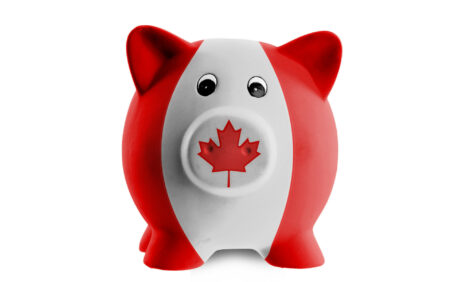



Is the pig industry ready for a Brexit 'no deal'?
NPA producer and allied industry members are being urged to step up preparations for a 'no deal' Brexit, which could generate chaos across the farming sector from 29 March 2019.Prime Minister Theresa May is now facing a leadership challenge, further muddying the already very unclear waters.
Following the eleventh-hour cancellation of Tuesday’s Brexit Commons vote, she had been seeking fresh assurances from EU counterparts on the main sticking point, the Brexit 'backstop' arrangements with a view to coming back to MPs with her deal.
The challenge to the leadership of her party now makes it even less likely, whatever the outcome, that a tweaked version of her deal will get through Parliament.
All options remain on the table – depending heavily on the outcome of the leadership challenge – from a delayed Brexit and/or possible People’s Vote and no Brexit, to a re-negotiated deal (which would probably require a delay to our departure) and, if some leadership contenders have their way, a 'managed no deal'. A General Election also remains a possibility.
However, with no option commanding anything like a parliamentary majority, the UK and EU administrations have both said that no deal planning is being stepped up.
NPA chairman Richard Lister recently attended a food supply chain workshop looking at the implications of a no deal. Some of the possible consequences include:
- An effective ban of anything from a few weeks to six months on UK exports of animals and animal products while the EU approves the UK as a third country exporter.
- Serious delays at ports as extra veterinary checks are required and some key routes, notably Dover-Calais, are unavailable due to a lack of border inspection facilities.
- Additional bureaucracy, logistical issues (for example, associated with storage) and costs associated with exports.
- Possible uneven tariff arrangements, as the EU imposes debilitating tariffs on UK imports, but the UK waives tariffs on EU imports to keep a lid on food costs – the worst-of-all-worlds scenario.
- A knock-on effect for pig prices and production as the vital two-way trade that ensures carcase balance is disrupted.
- Shortages of inputs, including veterinary medicines and disinfectants.
- A further devaluation of currency, which would help the competitiveness of UK pork but would make inputs more expensive.
- Possible labour shortages as free movement ends. This would hit farms, processors and other allied businesses, notably the veterinary sector, with implications also for meat inspection.
Mr Lister said: "No deal still is only one of various possible outcomes, but if it does come about, we should expect significant disruption, both to input supply and output. That will affect the entire industry and we need to be prepared.
"We are urging producers to think about the above issues. Have you considered the impact of a Brexit no deal on your business? As a start, you might want to ask those people who supply into your business and also those who take product from your business."
Allied Industry Group chairman Hugh Crabtree has contacted AIG members asking them similar questions about how their business might be affected and what plans they are putting in place.
"The impact of a no deal would reach right across the allied industries and we all need to ensure we are as ready as we can be," he said.
You can read an NPA briefing on the impact of an uneven post-Brexit tariff regime here.
As reported by Alistair Driver, NPA








